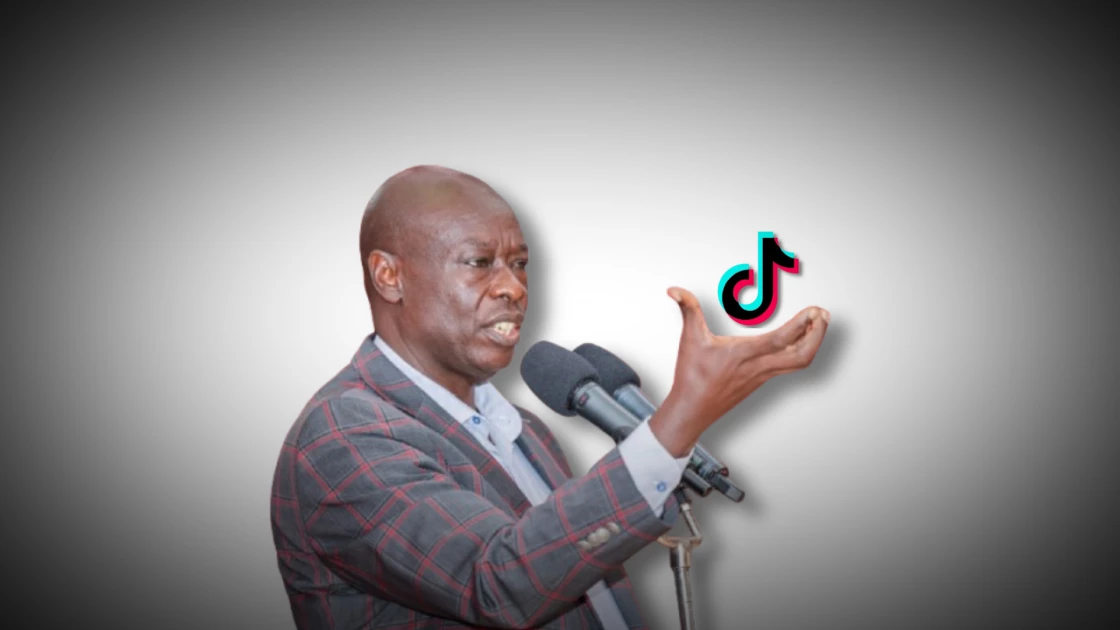Tokking to new audiences: Gachagua ups the ante on his political agenda with TikTok debut

Gachagua discussed a variety of topics, including the Social Health Authority (SHA) and the country's current political climate, during a session hosted by content creator Kuira wa Kabiru and moderated by several others.
Gachagua discussed a variety of topics, including the Social Health Authority (SHA) and the country's current political climate, during a session hosted by content creator Kuira wa Kabiru and moderated by several others.
His decision to use the popular social media platform marks a significant shift in his political strategy, which now also targeted the tech-savvy younger demographic and Kenyans in the diaspora.
The live broadcast, which lasted more than two hours and drew thousands of viewers, was not without challenges. Gachagua experienced abrupt interruptions, including being muted and cut off mid-sentence.
Moderators attributed these disruptions to external interference, which Gachagua himself blamed on the National Intelligence Service (NIS).
He accused the agency of attempting to stifle his message, claiming that similar interference hindered his team during his impeachment proceedings.
This move places Gachagua among a growing cohort of politicians leveraging TikTok to connect with voters.
While traditional campaign methods such as print media and televised debates once dominated, the digital age has seen a shift to platforms like Facebook and Twitter.
However, TikTok’s unique format and immense popularity are rapidly making it the go-to medium for political messaging, particularly among the youth who constitute a significant portion of the electorate.
TikTok’s appeal lies in its ability to deliver accessible and engaging content.
Its informal nature allows politicians to bypass the rigidity of traditional communication channels, presenting their messages in a relatable and authentic manner.
Unlike Instagram, which emphasises polished visuals, TikTok thrives on spontaneous, unedited content—from walking-and-talking videos to ad-libbed commentary.
This raw authenticity resonates with audiences, offering a more personal connection to political figures.
Globally, TikTok has proven its potential as a political tool. Former U.S. President Donald Trump, who initially sought to ban TikTok, reversed his stance during his 2024 campaign.
Recognising its reach among young voters, he joined the platform and amassed nearly 15 million followers, crediting TikTok for bolstering his appeal to younger demographics.
“TikTok had an impact,” Trump acknowledged in a December news conference, emphasising its role in his electoral success.
Closer to home, TikTok’s influence in Kenya is unparalleled.
As of July 2024, the platform boasted over 10.6 million registered users aged 18 and above, accounting for 46.7% of the nation’s internet users.
According to a 2023 Reuters Institute report, Kenya has the highest TikTok usage rate in the world, with 54% of Kenyans using the app for a variety of purposes, including news and entertainment.
This makes TikTok a fertile ground for political campaigns aiming to reach a diverse and engaged audience.
The growing reliance on TikTok for political communication reflects a change in voter behaviour. Many now turn to the platform for political news and information, drawn by its digestible format and dynamic content.
While there is no direct evidence linking TikTok activity to voter decisions, the correlation between effective platform use and electoral success cannot be ignored.
The app’s algorithm ensures that engaging content reaches a wide audience, making it a valuable tool for politicians seeking to amplify their message.
Gachagua's TikTok debut reflects the changing face of Kenyan political campaigns. By embracing this platform, he not only taps into its massive user base, but also demonstrates a willingness to adapt to modern trends.
As the next General Election approaches, TikTok’s role in shaping political narratives and engaging voters is set to grow, potentially redefining the way Kenyan campaigns are conducted in the digital age.
Want to send us a story? SMS to 25170 or WhatsApp 0743570000 or Submit on Citizen Digital or email wananchi@royalmedia.co.ke
Comments
No comments yet.



Leave a Comment